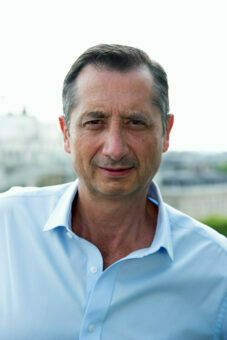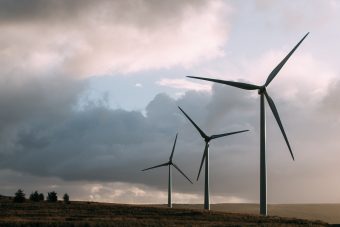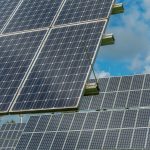
According to some estimates, the usage of RES (renewable energy sources) will cover 70–80 per cent of all humanity’s energy needs by 2050. Although the most important purpose of using RES is to replace non-renewable sources of energy whose quantity is limited, it is not the only goal. A healthier environment, a stable supply of electricity, as well as the economic progress along with the creation of new job positions, are also important benefits that we can expect from the application of RES. Despite the current geopolitical situation and the challenges brought by the pandemic, projects that contribute to a greater representation of renewable energy sources continue. We spoke with Eric Scott, the founder and president of Akuo, an independent energy producer, about how his company sees the further development of the green energy market, what is the potential for the Balkans and our country, and why the process of energy transition should be accelerated in our region.
EP: Tell us something about your entry into the world of renewable energy sources. What did it look like at the beginning, and where are you now?
Eric Scotto: We are pioneers in renewable energy sources because we started back in 2003, and at that time, we were building wind farms in France, Turkey, and Poland. At that time, the market was very small, in France, the potential of wind power plants was less than 12 MW, and already in 2004, we built the largest wind farm with a power of 57 MW. Two years later, we realized that it was important to diversify the technology because we didn’t want to be a company dealing only with wind energy but renewable energy in general. We started developing solar projects, even biomass projects, and then we started doing business in more countries. Today we have 20 offices worldwide and mainly focus on wind energy, solar energy, and electricity storage.
IN FOCUS:
- SERBIA ON THE PATH OF GREEN TRANSITION
- HOW TO BECOME A PROSUMER?
- A BETTER LEGAL FRAMEWORK AND INCENTIVE MEASURES ARE A CONDITION FOR THE DEVELOPMENT OF THE RECYCLING INDUSTRY
EP: You said that you do business in several countries — does this also apply to the Balkan countries? What is the potential of Serbia and the region regarding renewable energy sources?
Eric Scotto: The Balkans are very important to us primarily because this part of Europe still relies heavily on fossil fuels. Another reason is that the Balkans are rich in natural resources. We knew that the Balkans would have to turn to renewable sources at some point, and we are here to support this transition. In the Balkans, we started projects in Croatia, where we built a 42 MW wind farm, and the development of some solar projects is underway. We should also mention Montenegro, where we built a wind farm that is still reputed to be one of the largest in the region. Although we shouldn’t compete on who will build the biggest wind farm, it is very important to show how RES projects in the Balkans are progressing. As for Serbia, we are developing several wind projects with the capacity of 85 MW and 80 MW, and their construction is planned for next year. We are also developing solar power plant projects in North Macedonia and a project in Kosovo. The Balkans certainly have great potential in the production of green energy — one summer day this year brought us the largest production from wind power plants in Montenegro in the entire Balkans.

EP: In addition to constructing classic wind and solar power plants, what else is included in your portfolio?
Eric Scotto: I have already mentioned our experience in electricity storage projects, which I believe can be of great importance for the Balkan countries in the energy transition process. We are also developing agro-solar projects that combine food production and solar energy so that agriculture and solar projects will no longer compete for land. In addition, the projects of floating solar power plants built on hydropower reservoirs are very interesting because they can use the existing network, while on the other hand they contribute to saving water.
Interviewed by: Nevena Đukić
Read the story in the new issue of the Energy portal Magazine Waste Management.





